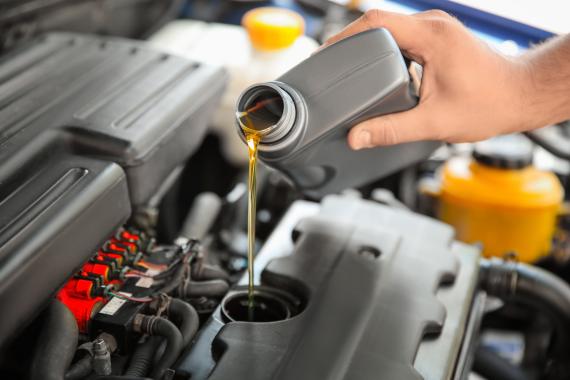If you are a new driver who has bought his car last year, this post is for you! What is an engine oil change? The engine oil change allows good lubrication of your engine, and its maintenance is essential for the proper functioning, reliability and longevity of the car. It must be regular and complete, as indicated by the manufacturer in the maintenance booklet.
Among the operations to be carried out for servicing, the oil change (engine) comes out first before checking the level of the coolant, the control of the timing belt and that of the exhaust.
Most common operation: engine oil change
The term “servicing” is commonly referred to as “engine oil change”. However, another example of servicing is changing the air filter, fuel filter and cabin filter.
Principle of the engine oil change
This is a simple but essential operation. It should be done often and is highly recommended before long trips. It consists of:
– emptying the used oil of the engine to replace it with clean oil;
– replacing the filter, which, being dirty itself, would contaminate the new oil.
Purpose of the engine oil change

This oil helps lubricate the engine. It reduces the friction between moving metal parts, which could deteriorate over time and damage the engine.
It is also helpful for:
– removing metal particles, dirt and other impurities from the engine;
– Protecting the internal parts against corrosion;
– improving engine cooling.
Criteria for choosing an engine oil
There are many different types of oil on the market in terms of standards, quality and viscosity.
Influence of viscosity
The viscosity, which decreases with temperature:
– must remain high enough for the oil to keep its protective role;
– without being too high so that the oil remains fluid sufficient to circulate easily in the engine.
Illustration by an example

Let’s take the example of an oil 10 W 40.
W is the cold viscosity (W = Winter).
The index of 10 W corresponds to the cold viscosity: the smaller the number, the more fluid the oil is (at low temperatures).
The second number, 40, corresponds to the viscosity obtained at high temperatures. The higher the number, the more viscous the oil is at high temperatures.
Choice of oil according to the type of pipe
There are oils:
– mineral, obtained from petroleum;
– semi-synthetic;
– synthetic, which is derived from a chemical process.
Thus, the more nervous your driving is, the more you need an oil that remains viscous, regardless of the temperature reached.
Your oil choice must also consider your car manufacturer’s recommendations, the use you make of your car and its age.
In the car’s service booklet, you will find the viscosity level and specification standards recommended by the manufacturer.
Frequency of oil changes
Changing the engine oil is easy to do (by a professional or yourself), and checking the oil level is even easier. It is recommended for almost all vehicles, except electric cars, which do not use fuel.
Indicative frequency
The frequency recommended by the various manufacturers is:
– every 10,000 to 15,000 km for gasoline engines;
– every 5,000 to 7,000 km for diesel engines.
Variation criteria
This frequency varies a lot depending on the type of your vehicle and your driving style, and the environment in which you live.
– Indeed, a vehicle that drives mainly on the highway will need this type of operation less often than one that only operates in the city.
– Similarly, you will change a diesel engine oil more quickly than a gasoline engine (6 months versus 1 year).
Other oil changes
There are other oil changes than the engine change. So there are additional filters to change as well:
– the air filter, which prevents air impurities from entering the engine so that the air-fuel mixture is correct;
– the fuel filter, which removes water or impurities from the fuel;
– the cabin filter deals with polluting particles in the air that cannot enter the vehicle.
These three filters are not changed as often as the oil filter. Here again, the maintenance booklet informs you of the interval you must respect between each operation.
Oil change price: fixed-price or not?
The price of car maintenance is important enough to be studied carefully:
– Professionals have multiplied the prices of their services at the same time as their offers. They all offer packages in which you will find this famous oil change.
– It’s up to you to know if your needs are related to these proposals. Don’t hesitate to ask for prices per service (isolated) to avoid surprises.
– The price range for oil changes goes from $30 to $90 depending on the oil used.
Don’t hesitate to ask for an oil change estimate.
Don’t hesitate to ask for an oil change estimate from several professionals to avoid unpleasant surprises. You will be able to choose between a single oil change or a package deal, and you will also be able to select the professional who will give you the best oil change quote.
When you ask for a quote, you must indicate the:
– main characteristics of your vehicle;
– additional services you want;
– control points that the professional must carry out.
Once you have your oil change estimate, study them carefully to compare the services offered.
Hope this post helps you with your engine oil change. Remember to share your experience in the comments below.




